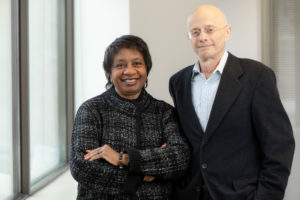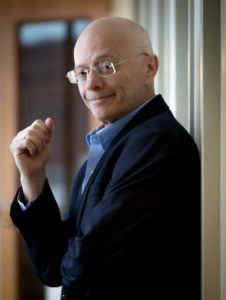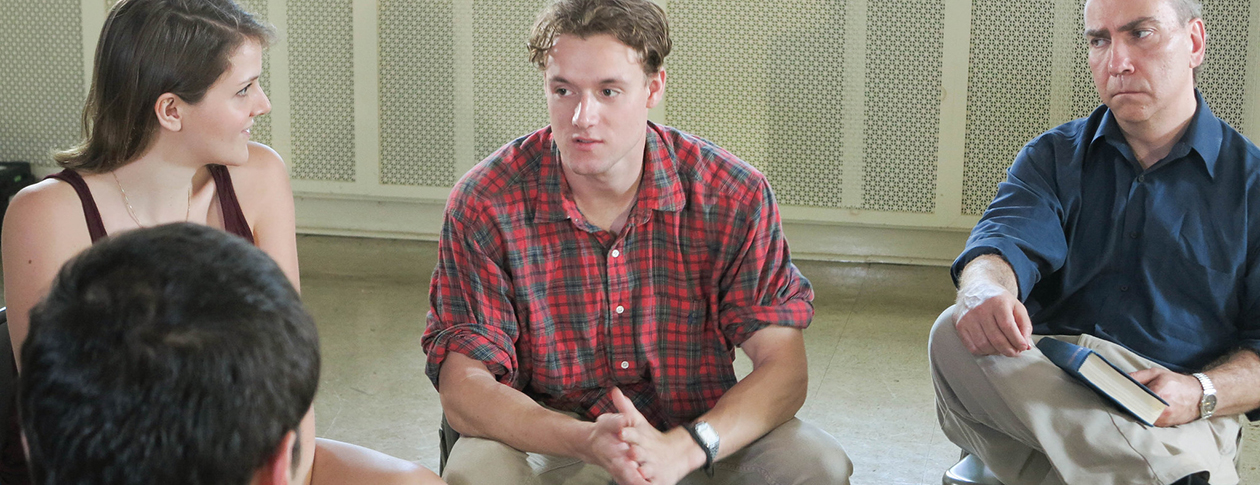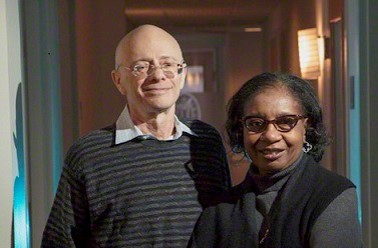Home » Community Psychology
Category Archives: Community Psychology
Psychologists Earn $6.6M Grant for Youth Violence Prevention Project

Psychology professors W. LaVome Robinson and Leonard A. Jason have earned a $6.6 million grant from the National Institute of Mental Health to reduce African American youth violence. The award is the largest research grant DePaul University has ever received.
Becoming a Great Mentor
Becoming A Great Mentor: What @DePaulU grad student Mayra Guerroro says about Prof. Leonard Jason (@CenterRes) and what he has learned from her. @APA_Monitor. https://t.co/NjHfQ8scNw pic.twitter.com/s1MDvoqI0P
— DePaul Newsroom (@DePaulNewsroom) January 3, 2019
Defining Community Psychology
|
|
2019 (April 18). Leonard Jason, Academic Minute. Most people think of psychologists in very traditional ways. http://bit.ly/LJasoAM
Psychologists are more than therapists.
Leonard Jason, professor of clinical psychology at DePaul University, examines the field of community psychology.
Leonard Jason is a professor of clinical and community psychology in DePaul University’s College of Science and Health. He’s also the director of DePaul’s Center for Community Research. A DePaul faculty member since 1975, Jason’s research interests include chronic fatigue syndrome and myalgic encephalomyelitis, recovery homes, school violence and methods for prevention, smoking and methods for prevention, media interventions, children and media, and community building. He’s an editorial board member for the Journal of Community Psychology, the Journal of Prevention and Intervention in the Community, the Journal of Health Psychology, and Fatigue: Biomedicine, Health & Behavior. He’s the author of the 2013 book, Principles of Social Change. Jason holds a Bachelor of Arts in psychology from Brandeis University and a doctorate in clinical and community psychology from the University of Rochester.
Defining Community Psychology
Most people think of psychologists in very traditional ways. For example, if you were to close your eyes and imagine one, there is a good chance you would think of a therapist.
My field is called community psychology, and it is a wonderful blend of psychology and sociology. It creates new roles and opportunities for psychologists by extending the reach of services to those who have previously been under-represented. It also focuses on prevention rather than just treatment of psychological problems and on actively involving community members in the change process. In a sense, we are like community organizers but specifically trained to be able to evaluate whether or not our social justice interventions are effective.
The field of community psychology focuses on preventing — rather than just treating — psychological problems. In fact, no condition or disease has ever been eliminated by focusing just on those with the problem. An impressive example of prevention occurred with community efforts to change the landscape of tobacco use over the past 50 years. Today, attitudes have changed toward tobacco use and there are substantially fewer smokers. Community organizations aided by community psychologists made important contributions to these efforts.
The community psychology approach shifts the power dynamic to a less hierarchical, equal relationship, as all parties participate in the decision-making process. Community members are seen as resources, who provide unique points of view about the community and the institutional barriers that might need to be overcome in social justice interventions.
Community psychology’s focus on social justice is due to the recognition that many of our social problems are created when resources are disproportionately allocated throughout our society, which causes social and economic inequalities such as poverty, homelessness, unemployment and crime.
It’s important that we as a society continue to look for transformative ways of solving social problems, and community psychologists are here to help.
Affordable solutions to a health problem
Click here to see Leonard Jason’s Oxford University Press Blog titled: Comprehensive affordable solutions to a major health problem. The first paragraph of the blog is below:
Alcohol and drug abuse costs Americans approximately $428 billion annually. Despite this enormous cost—which, we must remember, is just the economic face of a community, family, and individually life-shattering problem—the vast majority of those with an alcohol or substance use problem do not receive treatment, and even fewer are likely to achieve long-term sobriety. In short, the existing system is characterized by inadequate access, high recidivism, and recurring treatment—at best, an ineffective and expensive revolving door. It has become increasingly clear that detoxification and treatment programs are insufficient to ensure abstinence from drugs and alcohol; for most people with substance use disorders, continued longer-term support following treatment is necessary.
S.O.S. for At-Risk Teens
Click here to check out our feature by DePaul
LaVome Robinson is proving the adage “an ounce of prevention is worth a pound of cure” in her work with African-American adolescents in Chicago.
Backed by a five-year grant of nearly $3 million from the National Institutes of Health, the professor of psychology is making a difference in the lives of at-risk teens through an intervention program—Success over Stress (S.O.S.)—which gives them skills in reducing stress, anxiety and aggression. S.O.S. includes 15 weekly group sessions during which the students learn to identify stress, understand its symptoms and causes, and manage it with a range of strategies.
“We give them strategies they can put in action—problem-solving strategies, relaxation strategies, thought-stopping strategies, and alternative-thinking strategies—so they can gain some control,” says Robinson. “By the end of the sessions, the teens can monitor their stress levels day-to-day, put a strategy in place when they need to, and generally maintain their equilibrium.”
Robinson and her research partner, Leonard Jason, designed S.O.S. to work for these kids, in this place, at this time. “The life of an African-American child in Chicago is radically different from the life of a white child in Chicago and even of an African-American child in other cities” says Robinson. “Yes, like other kids they worry about their grades or about their social lives, but the biggest thing they worry about is their safety in the midst of potentially explosive situations. Generic stress reduction programs just won’t help. So, we made sure that everything in the S.O.S. program—the identified sources of stress, the examples and case studies, the language used by the group facilitators—is relevant to these specific teens.”


